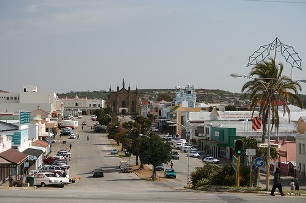High level of toxic metals in water

According to recently released research, drinking a litre of Settler City tap water a day for three months could lead to severe lead and mercury poisoning. Cadmium poisoning could become a reality after six months and aluminium and arsenic poisoning after one year.
Calling the findings “alarming”, Rhodes University neuro-chemist Professor Janice Limson yesterday said residents ran the risk of short-and long-term organ damage to the kidneys and liver from cadmium and mercury in the water. “They (metals) can also affect our brains and nervous system causing memory loss and depression and by damaging the body’s natural repair systems, can result in accelerated ageing. “Many of the toxic heavy metals are also carcinogenic…it is particularly worrying that these metals can be transferred to unborn babies.” Although some heavy metal consumption may not be immediately problematic, concerns have been raised over the long-term accumulative affect of the toxins.
And, it is not just the health of Grahamstown residents that is at risk. According to local ostrich abattoir manager, Werner Raubenheimer the future of the town’s lucrative export facility is also in jeopardy, especially if the European Union pulls the plug on buying meat from Grahamstown.
The water findings only became public knowledge when Raubenheimer released SABS-approved tests of tap water from the Integrated Meat Processors of the Eastern Cape (Impec) plant in the town’s industrial area. “We have been testing the water weekly since 1993 and only started picking up heavy metal problems over the past two years. “We are facing a looming human and economic disaster that could have long-term negative implications for the whole town, if we do not sort it out.”
Besides excessive concentrations of heavy metals, Raubenheimer said another huge concern was bacteriological problems – especially over the past five years. Regular tests for E.coli coliforms and faecal counts often revealed results, “as regular as clockwork”, that were considered “too numerous to count”.
Municipal spokesperson Thandy Matebese said yesterday the town had “engaged with Amatola Water to try and resolve water quality problems”. Matebese did not release the results of municipal-funded tests.
A local water expert blamed the problems on a “skills shortage” in the local authority – despite the town having some of the best experts in South Africa living and working there. “The data shows that, for a period from at least 2006, the level of aluminium in our water has been well over the legal limit, and that, if somebody were to have been drinking that since then, by 2012 it will have caused irreparable long-term damage to their health,” the expert said.